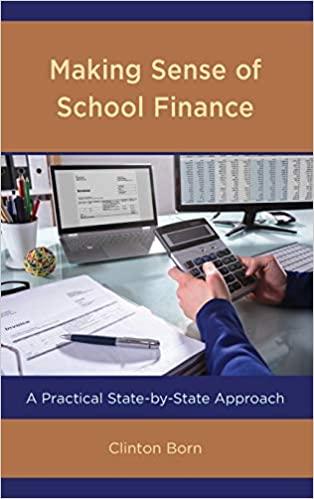Question
Suppose you are in the second semester of your final year at university and are faced with the choice of either getting a job when
Suppose you are in the second semester of your final year at university and are faced with the choice of either getting a job when you graduate or studying for a Masters degree. Of course, your choice is not purely financial. However, to make an informed decision, you would like to know the financial implications of the two alternatives. Let us assume your opportunities are as follows:
If you take the get a jobroute you expect to start off with a salary of $30 000 per year. There is no way to predict what will happen in the future, but your best guess is that your salary will grow at 4% per year until you retire in 40 years. If you study for a Masters degree, you will be paying $15 000 per year in tuition fees for each of the three years you are studying. However, you can then expect a job with a starting salary of $54 000 per year. Moreover, you expect your salary to grow by 6% per year until you retire 37 years later.
Clearly, your total expected lifetime salary will be higher if you get a Masters degree. However, the additional future salary is not free. You will be paying $15 000 in tuition at the beginning of each of the three years of your Masters program. In addition, you will be giving up $93 640 in lost income over the three years of additional study: $30 000 in the first year, $31 200 in the second year, and $32 448 in the third year.
Required: (a) To start your analysis of whether to study for a Masters degree, calculate the present value of the future earnings that you will realise by going directly to work, assuming a 2% annual discount rate. (b) What is the present value today of your future earnings if you decide to study for a Masters degree, assuming a 2% annual discount rate? Remember that you will be studying for three additional years before you start work. (c) If you pay your Masters program tuition fee at the beginning of each year, what is the present value of your tuition fees, assuming a 2% annual discount rate?
Step by Step Solution
There are 3 Steps involved in it
Step: 1

Get Instant Access to Expert-Tailored Solutions
See step-by-step solutions with expert insights and AI powered tools for academic success
Step: 2

Step: 3

Ace Your Homework with AI
Get the answers you need in no time with our AI-driven, step-by-step assistance
Get Started


